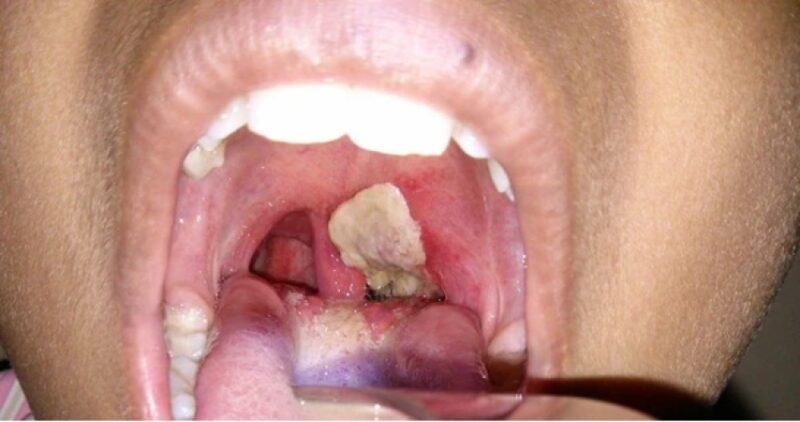Health
Stop using recalled sex enhancement capsule, NAFDAC warns men

Stop using recalled sex enhancement capsule, NAFDAC warns men
The National Agency for Food and Drugs Administration and Control on Sunday warned people against the use of PrimeZen Black 6000mg, a male performance enhancement capsule, recalled from the market.
NAFDAC Director-General, Mojisola Adeyeye, in a statement, said Volt Candy was voluntarily recalling the PrimeZen Black 6000mg capsule alongside its 2000mg due to undeclared ingredients they were made of by their manufacturer in America.
“The recall followed the analysis of Food and Drug Agency (FDA) of the United States of America, which found the PrimeZen capsules to contain undeclared tadalafil and sildenafil.
“Sildenafil and tadalafil are phosphodiesterase (PDE-5) inhibitors found in FDA-approved products for the treatment of male erectile dysfunction.
“The presence of sildenafil and tadalafil in PrimeZen Black 6000mg capsules renders them unapproved drugs for which safety and efficacy have not been established and, therefore, subject to recall.
READ ALSO:
- Police arrest 4 bankers over alleged murder of debtor’s wife
- Barcelona crowned Laliga champion after beating Espanyol 4-2
- Senegal beat Burkina Faso 5-4 on penalties in U17 AFCON semifinals
“PrimeZen Black 6000 capsules containing sildenafil and tadalafil may interact with nitrates found in some prescription drugs (such as nitroglycerin) and cause a significant drop in blood pressure that may be life-threatening.
“People with diabetes, high blood pressure, high cholesterol or heart disease often take nitrates.
“Among the adult male population who are most likely to use these products, those who use nitrates for cardiac conditions, are most at risk of these products,” she said.
According to her, “The product details are as follows: PrimeZEN Black 6000 male enhancement capsules, manufactured by Volt Candy, 324 S. Diamond Bar Blvd #212, USA.”
The NAFDAC boss said that the lot Number is NPINPB 1003, UPC code: 728175521891, expiration date is August 16, 2025 for PrimeZen Black 6000mg being marketed online as a dietary supplement for male enhancement and packaged in a blister card with one capsule.
She said the product could be identified by the card colour in black with the name on it as PrimeZen Black 6000.
She urged members of the public in possession of the product to stop its sale or use and hand it over to the nearest NAFDAC office.
Stop using recalled sex enhancement capsule, NAFDAC warns men
(NAN)
Health
Nigerian doctor pioneers W’Africa first robotic prostate cancer surgery

Nigerian doctor pioneers W’Africa first robotic prostate cancer surgery
A Nigerian Consultant Urological/Robotic Surgeon, Professor Kingsley Ekwueme on Monday in Lagos pioneered the first West African robotic surgery on a prostrate cancer patient.
Ekwueme, a UK-based medical doctor returnee recently established The Prostate Clinic, (TPC) Nigeria Centre for Robotic and Laparoscopic Surgery, the first super-specialised clinic in West Africa dedicated to the diagnosis and treatment of prostate cancer, utilising cutting-edge robotic surgery.
“This is truly historic,” declared Ekwueme, the clinic’s founder.
“We are bringing technology that has never been seen before in this region, giving Nigerians access to world-class treatment right here at home.”
The clinic’s centerpiece is the Da Vinci Robot, an advanced surgical system that provides unparalleled precision and minimally invasive procedures. “
Briefing journalists on the feat, Ekwueme explained that: “The Da Vinci Robot offers three-dimensional imaging and seven degrees of freedom, allowing for surgeries with minimal blood loss and faster recovery times.”
“Patients experience significantly less pain and scarring compared to traditional open surgeries.”
Ekwueme, a renowned urologist, emphasised that the technology extends beyond prostate cancer.
“We are treating a range of urological conditions in both men and women, including kidney cancer, bladder cancer, kidney stones, and benign prostatic hyperplasia. Our goal is to transform surgery in Nigeria.”
READ ALSO:
- How 12 inmates escape in Kogi jailbreak – Prison spokesman
- Fubara: Supreme Court reacts to photo of Justice Agim with Wike
- Aviation workers threaten nationwide airports shutdown over Customs officer assault
Noting that the key focus of the clinic was accessibility, he said he is determined to make these advanced procedures affordable for all Nigerians.
“My mission is to ensure that no one in this country dies needlessly due to a lack of access to quality care.
“We are working to make these procedures as cost-effective as possible, and we are open to partnerships with the government to expand our reach.”
To address Nigeria’s power challenges, the clinic is equipped with a comprehensive solar power system, ensuring uninterrupted operations. “We understand the importance of reliable power.
“Our 24-hour solar system ensures that we can provide consistent, high-quality care.”
He said he is also committed to training local medical professionals in robotic surgery, ensuring the long-term sustainability of the technology in Nigeria.
“We are investing in the future of Nigerian healthcare. We want to empower our doctors with the skills they need to provide world-class care.”
Debunking common misconceptions about prostate and sexual activities, Ekwueme clarified that there is no proven dietary prevention for prostate cancer. “The primary risk factors are age, race, and family history. Early detection and access to advanced treatment are crucial.”
Looking ahead, Ekwueme revealed plans to introduce groundbreaking technology for benign prostatic hyperplasia (BPH) with zero blood loss.
“I am doing a procedure tomorrow, and soon I will unveil a technology that has never been done in Africa, splitting the prostate from the inside with absolutely no blood loss,” he stated.
He said with its state-of-the-art technology, commitment to affordability, and focus on local training, The Prostate Clinic Nigeria Centre for Robotic and Laparoscopic Surgery is poised to revolutionise cancer care in West Africa, offering hope and advanced treatment options to countless Nigerians.
Nigerian doctor pioneers W’Africa first robotic prostate cancer surgery
Health
FG destroys another 200 containers of expired drugs

FG destroys another 200 containers of expired drugs
The Federal Government Joint Committee on the destruction of fake, illicit and expired pharmaceuticals has destroyed another 200 containers of substandard drugs worth billions of Naira imported into the country through the Apapa and Tin-Can Island seaports.
This is coming after the committee initially destroyed 250 containers of the same expired pharmaceutical products in January, 2025.
To this end, the committee comprising the Nigerian Customs Service (NCS), National Security Adviser (NSA), National Drug Law Enforcement Agency (NDLEA), National Agency for Food Drugs Administration and Control (NAFDAC) and Nigerian Army has destroyed a total of 450 containers of expired drugs in the first quarter of 2025.
The destruction exercise which took place in Epe, Lagos State yesterday, was part of a broader initiative of the Federal Government to curb importation of illicit and controlled drugs in order to safeguard public health and curb drug-related crimes in the country.
The pharmaceuticals destroyed were Tramadol, codeine, Apetamine, and Analgin injection amongst others.
Speaking to newsmen, the National Security Adviser (NSA), Mallam Nuhu Ribadu, said the initiative was important to prevent the circulation of dangerous substances such as Tramadol and Codeine, which are often abused, thus contributing to criminal activities in the country.
READ ALSO:
- Rivers court bars woman from answering ex-husband’s name
- PDP gives condition to back Atiku, Obi, El-Rufai in 2027
- Gov Fubara’s suspension dents Nigeria’s image, says ex-President Jonathan
Mallam Ribadu, who was represented by Ibrahim Sulaiman, said the destroyed drugs were seized at Apapa, Tin Can, and Lekki seaports.
He, however, disclosed that similar destruction was conducted in Port Harcourt as part of the first phase.
“The National Security Adviser is very passionate about ensuring that these illicit drugs do not remain in circulation. The government will not allow perpetrators to act with impunity; they will be arrested and prosecuted,” he stated.
The intercepted drugs were either expired or classified as controlled substances that should only be used under strict medical supervision.
Also, the Assistant Customs Controller, A.O Oguntuase from FOU Zone A, emphasised the enforcement efforts of security agencies in tracking and intercepting these illegal imports.
“Through intelligence gathering and swift action, we have been able to prevent the distribution of these drugs.
“The value of the destroyed substances is enormous, with each container estimated to be worth close to a billion naira,” he said.
On his part, representative of the NDLEA, DC Omotosho Solomon, stated that suspects arrested in connection with the goods were being tried in court.
Solomon warned importers engaged in the trafficking of illicit drugs and pharmaceuticals to desist from such acts or face the full process of law on illegal importation.
FG destroys another 200 containers of expired drugs
Health
1,319 died of Diphtheria in Nigeria, says NCDC

1,319 died of Diphtheria in Nigeria, says NCDC
The Nigeria Centre for Disease Control and Prevention (NCDC) has confirmed that the ongoing diphtheria outbreak in the country has claimed 1,319 lives.
The alarming figure was disclosed in the latest situation report from the National Diphtheria Emergency Operations Centre (EOC), published on the agency’s official website.
Diphtheria, a highly contagious bacterial infection caused by Corynebacterium diphtheriae, primarily affects the mucous membranes of the throat and nose.
The bacteria produce a dangerous toxin that can cause severe complications such as breathing difficulties, heart failure, and nerve damage.
According to the NCDC, more than 42,000 suspected cases have been recorded across 37 states since 2022. The latest report covers epidemiological week 10 of 2025 and highlights ongoing challenges in controlling the outbreak, including low vaccination coverage, inadequate laboratory capacity, and delays in confirming cases,” the agency stated.
Kano State accounts for 75% of confirmed cases, with 18,108 out of 25,812 recorded in the country. Other high-burden states include Bauchi with 2,334 cases, Yobe with 2,408 cases, and Katsina with 1,501 cases.
READ ALSO:
- TUC backs NYSC member for criticising Tinubu administration
- Governors lobby Tinubu over direct allocation to LGAs
- Peace deal must bar Ukraine from Nato, Russian official says
Out of the 42,642 suspected cases reported, 25,812, or 60.5%, have been confirmed, including 396 laboratory-confirmed cases, 216 epidemiologically linked cases, and 25,200 clinically compatible cases. A total of 7,769 cases, representing 18.2%, have been discarded, while 3,591 cases, or 8.4%, remain pending classification. Another 5,470 cases, making up 12.8%, have an unknown classification.
The confirmed cases are spread across 184 Local Government Areas in 26 states. Kano, with 18,108 cases, has the highest number, followed by Bauchi with 2,334 cases, Yobe with 2,408 cases, Katsina with 1,501 cases, Borno with 1,161 cases, Jigawa with 53 cases, Plateau with 119 cases, and Kaduna with 44 cases. These states together account for 99.7% of all confirmed infections.
The NCDC reported that the overall case fatality rate stands at 5.1%, meaning that one in every 20 confirmed cases results in death. However, some states have recorded significantly higher mortality rates. Kaduna has a fatality rate of 58%, Plateau 48%, Lagos 83 per cent, and Adamawa 80%.
In the latest reporting week, 23 new suspected cases were identified, 20 in Lagos and three in Katsina. However, none have yet been confirmed, with 56.5% of cases still unclassified due to delays in laboratory testing.
To curb the outbreak, the NCDC stated that the federal government has launched reactive vaccination campaigns in high-burden states and intensified community engagement efforts, particularly through traditional and religious leaders.
The agency urged the public to ensure they are vaccinated and to seek medical attention immediately if they experience symptoms such as sore throat, fever, or difficulty breathing.
1,319 died of Diphtheria in Nigeria, says NCDC
-

 metro2 days ago
metro2 days agoAttack on Mufty of Ilorin: Onikijipa Family Charges Stakeholders to Call Sheikh Habibullahi Al-Ilory to Order
-

 metro3 days ago
metro3 days agoCourt refers Ojukwu property case to alternative dispute resolution
-

 Health2 days ago
Health2 days agoNigerian doctor pioneers W’Africa first robotic prostate cancer surgery
-

 metro3 days ago
metro3 days agoCBN rejects Osun nomination of ex-Aregbesola’s commissioner as bank director
-

 metro3 days ago
metro3 days agoRivers: Presidency reveals security intelligence leading to emergency rule
-

 metro2 days ago
metro2 days agoFubara: Supreme Court reacts to photo of Justice Agim with Wike
-

 metro2 days ago
metro2 days agoUNIOSUN mourns as 5 students die in auto crash
-

 metro3 days ago
metro3 days agoShehu Sani faults senators taking voice vote objection to media







